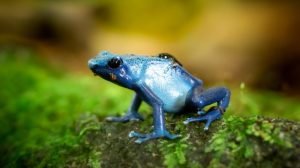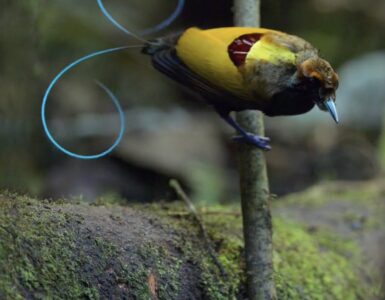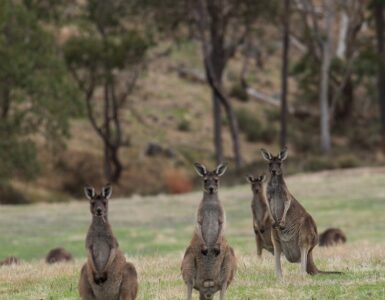What are Rainforests?
Rainforest is a portmanteau of two words – Rain and Forests. They are essentially forests characterized by continuous rainfalls, an enclosed canopy of trees, and rich species diversity.


The rainforests have evolved over millions of years, with thousands of plants and species living harmoniously with nature. The exact number of species in the rainforest is still unknown; with discoveries every few weeks, it is hard to put a number. Though studies have indicated about 40000 plant species and more than 15000 types of trees are present in Amazon rainforests. Rainforests also hold around 50 percent of all terrestrial biodiversity found on Earth.
The world’s largest rainforest is the Amazon rainforest, of which more than half is in Brazil. Other South American countries that share Amazon rainforests are Peru, Colombia, Bolivia, Ecuador, French Guiana, Guyana, Suriname, and Venezuela. Apart from the mighty Amazon, rainforests are also found in Congo, Indonesia, Australia, and other countries.
Importance of Rainforests
As we all know, trees in forests can remove large amounts of carbon dioxide emissions from the atmosphere due to photosynthesis. But only a few of us know the contribution rainforests can make; here are four primary reasons to recognize the importance of rainforests.
Lungs of Planet– Rainforests cover about 5% of the earth’s surface but can absorb far higher levels of carbon dioxide from the atmosphere than other kinds of forests.
Jewels of the Earth – The rainforests also accommodate the most significant number of plants and animal species. Some studies have said 50% of the world’s plant and animal species reside in these forests.
World’s largest Pharmacy – One of the lesser-known facts is their contribution to medicines, beauty products, and food. 25% of all Western medicine comes from the ingredients found in the rainforests.
Food bowl – The importance of rainforests is also felt at our dinner table. Humanity depends on rainforests for the variety of food it provides, from coffee to spices, from vegetables to fruits; the resources from our rainforests are needed for survival.
A visual tour that explains the importance of rainforests.
Rainforests are under severe stress
Given climate change, our planet needs more land covered with trees and forests – preferably rainforests.
Unfortunately, increasing urbanization, growing population, and insatiable human desires put a lot of stress on these rainforests. Forest trees are cleared by chainsaws & bulldozers for human expansion, wood use, agriculture, and raising animals.
Massive deforestation creates havoc on the ecosystem contributing to droughts, forest fires, and even large-scale criminal activities. There are reports that land mafias and large corporations have ordered the killings of local people who have raised their voices to protect the forests. If deforestation continues at such a fanatic pace, the survival of a large variety of species is doomed.
Wrapping Up – What can we do to Protect Rainforests?
Here are a few steps to protect the rainforest, which we can incorporate into our routine and lifestyle.
Reduce animal meat and dairy consumption
Thousands of hectares of Amazon rainforest land are used for wood and animal agriculture. Hundred more hectares are used for planting soybean to feed the cattle.
In addition, the animals involved in dairy and meat, i.e., cows and bulls emit potent methane gas into the atmosphere – methane is substantially more potent than carbon dioxide, thus harming the environment even more.
The beef and food grains from Latin American countries are exported to other regions in South America and the USA.
Reducing Consumption of Palm Oil Products
Palm oil is one of the most popular vegetable oils, with over one-third of global consumption. It is used as cooking oil and an ingredient for various other uses – bread, lipstick, shampoos, soaps, cookies, and even bio-duel. Most of the Palm oil comes from the trees grown in deforested rainforests in Africa, Indonesia, and Malaysia.
The massive consumption of palm oil is leading to the displacement of local people, the killing of endangered species, and deforestation. Orangutan, Borneo elephant, and Sumatran tiger are some animals being pushed on the verge of extinction.
Immediate stopping of palm oil and its products might not happen. Hence incremental changes would be a way to go. Using sunflower, flaxseed, or olive oil for cooking purposes, checking for the product packaging for the ingredients, etc., can be incorporated into our daily lifestyle.


Create an Awesome Home with Rainforest Plants
Studies have estimated 40000 plant species and more than 15000 trees in Amazon rainforests. Not everything can be brought to the home, but there are a few rainforest plants for home use that can be planted in small pots & cups. Jade plants, Ferns, and Syngonium are relatively easy to grow and nurture in your home, balconies, or gardens.
Share and create awareness
The more people become aware and acknowledge the seriousness of the problem; the greater will be the impact. We need leaders and decision-makers to make large-scale policy decisions. That can only happen when people participate, speak to their respective policymakers, and implement measures for a productive ecosystem.
Every year, June 22nd is celebrated as World Rainforest Day to recognize the importance of rainforests and to create awareness of the need to conserve, protect & grow them exponentially. The day was first observed in 2017 by a non-profit organization called Rainforest Partnership, which works to preserve rainforests through sensitization and collaboration.






Add comment